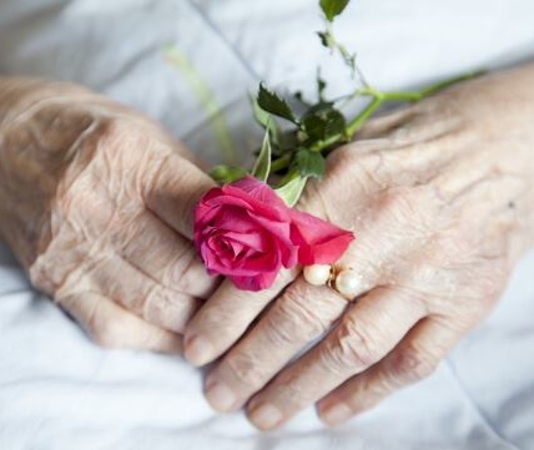By Brenda Avadian, MA, The Caregiver’s Voice
Oftentimes, we dive deep into caregiving before we realize we are caregivers. We feel the tug of a tether to Mom or Dad. From a thousand miles away, we call to make sure Mom is doing all right. Some of us juggle our own family and work responsibilities while checking in on Dad each week to make sure he has what he needs.
Twenty-five years ago, I became involved in my father’s care after my mother died. I called regularly from California. I’d visit him in Wisconsin, once or twice a year. Seeing he could no longer live alone safely, my husband and I explored our options. In an unusual twist (for us), we decided to care for him in our home.
Your family will take your own path when it comes to planning for—or not—helping a loved one. It can be beneficial to self-identify as a caregiver because then you’re more likely to seek out resources to aid everyone involved.
Let’s explore three types of caregivers, recognizing that at any given time we may be one of them, then transition to another kind or somewhere in between. Once we realize that we are indeed caregiving, we can explore different options to help us along our path of caregiving.
One Who Calls Regularly and Visits Once or Twice a Year
Many people are long-distance caregivers, and likely the group least likely to realize that they are caregivers.
Picture this scenario and see if it might describe you: Mom and Dad still live in your childhood home. You live and work across the country and call them regularly. Dad sounds exhausted. Mom says Dad can easily manage, since she hardly needs anything.
Last year, you used one of your two weeks of vacation to visit your parents. You were surprised to observe your mostly bedridden mother making demands of your father, constantly. If he didn’t answer right away, she’d get out of bed to find him. After hearing her wheezing and short-of-breath, you were afraid he’d have more problems if she collapsed.
Dad admitted that they argue a lot; especially, after he doesn’t answer right away. He is feeling a lot of stress. You are afraid he won’t survive long enough to finish caring for her.
A Buddy Who Checks in On Dad
Or maybe this more accurately describes you: Your independent and headstrong dad wants to live in his own home. You visit him on Sunday afternoons, hang out a while and then go home. He seems to be fine. He follows a routine and is in familiar surroundings. Your sister, who lives a couple states away is concerned. She calls Dad almost every day. She riles him up and then he calls you asking, “What’s all the fuss about?”
Your sister’s words weigh on your mind. Since your mom died, you’ve noticed a few things, but paid them little mind. The bathroom and kitchen are messier. Dad doesn’t shower as often. You ignore the odd smells. Come to think of it, he hasn’t done the laundry, lately. His clothes have new stains on top of the old ones. Still, his life is not in danger.
You wonder how to keep the peace between your sister and dad while juggling your own full-time job, wife, and children’s activities.
Hands-On Primary Caregiver
Amazingly, even though they might be providing physical care on a daily basis, some people are still in denial that they are caregiving. Could this be you? After your father died, your mother was heartbroken. You’re surprised because they didn’t get along during the last decade of his life. You thought it was a blessing even though you regretted not spending more time with him toward the end.
When your mother could no longer live alone safely, you and your husband moved her into your home. You figured you could spend more time her. Besides, having more family members to socialize with might address her loneliness, which increased after a diagnosis of dementia.
While she seems to manage her day-to-day activities, she cannot be left alone. Lately, you and your husband have been losing sleep because she’s getting up at night. Her sense of time is gone and she wakes you in the middle of the night fearing you’ll be late for work (or school).
Getting the Help You Need
Each family member above is a caregiver, caring from a distance, checking in regularly or providing hands-on care at home.
Once you’re aware that you are caregiving, you’ll be more open to finding the resources and information to help you.
While my father attended adult day care, I attended a support group and learned how other family members handled their caregiving responsibilities. Support groups enable caregivers to feel less alone. We draw strength by being with others who walk the same path we do and understand what we’re going through. This is comforting and provides strength.
If you’re a distant caregiver, a gift of respite to the hands-on family caregiver might be welcome. This could be in the form of hiring a professional caregiver to take a turn so the caregiver can get out and maintain their own life. Or, asking a trusted friend or neighbor to step in while the primary family caregiver enjoys a night out thanks to your gift certificate for dinner and a movie.
Exploring care options in advance will help reduce the burden caused by caregiving crises. While you might believe you have little time now, you’ll have no time during a crisis. Life tends to go about its own schedule and crises often occur during the most inconvenient time.
Try out some of your care options along the caregiving continuum. Start with in-home care agencies, friends, neighbors, and others in your community who are willing to help. See how your family member responds to different caregivers before choosing the one that works best.
Whichever option you choose, in-home care, adult day services or even residential care, taking the time now to get to know the people offering these services and to fill out paperwork on your own schedule will help you and your loved one more easily call upon these services when there’s a need.
Whether you need a few hours off or an extended weekend, taking regular respites benefits you the caregiver and your loved one. Your loved one may welcome a refreshing change-of-pace and even be on his best behavior. Meanwhile, you’ll build in some time to re-energize and return refreshed—no matter what kind of caregiver you are.





